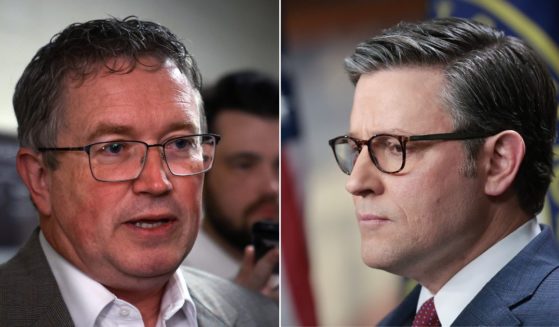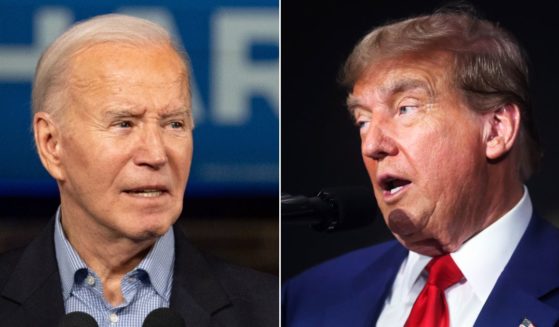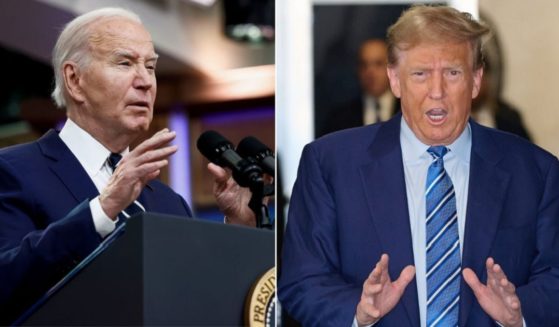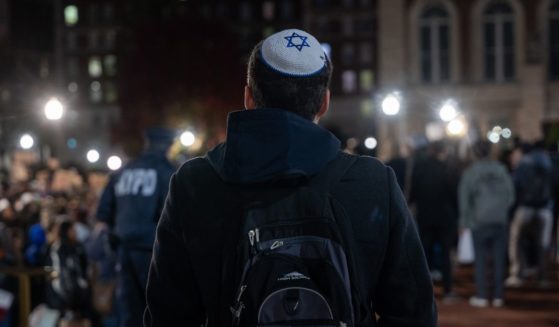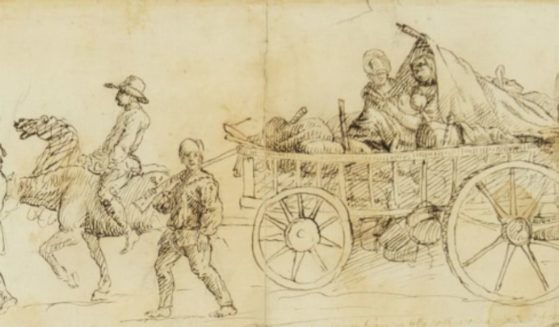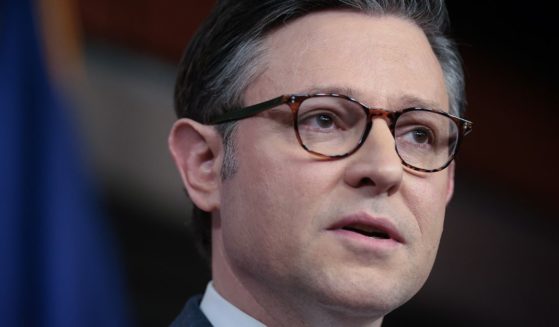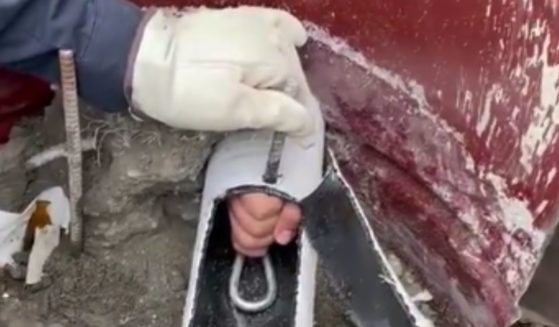The Time I Witnessed an FBI Asset Flip a US Senate Race
Call me unsurprised if FBI informants urged people to enter the Capitol on Jan. 6, as Fox News host Tucker Carlson apparently has been uncovering.
I witnessed similar shenanigans by an FBI informant while working on Republican U.S. Senate candidate Joe Miller’s campaign in Alaska in 2010, and his actions in all likelihood cost our candidate the race against incumbent RINO Sen. Lisa Murkowski.
Reuters reported on March 3 that U.S. Army Iraq War veteran Mark Ibrahim was fired from his job with the Drug Enforcement Administration and faces up to 15 years in prison for allegedly entering the Capitol on Jan. 6 and carrying a firearm.
Ibrahim denied entering the building and said the gun was his DEA service weapon, which he had with him though he was off duty at the time, according to the report.
Episode 2 of Carlson’s Fox Nation three-part series “Patriot Purge” featured Ibrahim, who recounted that he was invited to attend the Jan. 6 “Stop the Steal” rally by a person he knew from his military service who is allegedly an FBI informant.
Carlson said in the program that the man confirmed he has been an FBI informant and that the bureau knew he was at the Capitol on Jan. 6, and that he invited Ibrahim to the protest.
This same person urged Ibrahim to enter the Capitol building, but the Army veteran knew it was illegal and refused to do so, Carlson said.
Last week on his Fox News program, Carlson also waded into the prospect that an Arizona man named Ray Epps, who reportedly was captured on film on Jan. 6 urging people to break into the Capitol, is likely an FBI informant.
The ongoing mystery of Ray Epps, who repeatedly appears in videos encouraging and inciting an invasion of the Capitol on 1/6 yet, for some reason, has not yet been indicted or charged, even as people with far less involvement have been: https://t.co/hzGZCo9MKe
— Glenn Greenwald (@ggreenwald) October 26, 2021
Darren Beattie, who wrote a piece about Epps for Revolver News on Oct. 25, told Carlson, “He is calling for going into the Capitol the evening before Jan. 6, and this isn’t just a one-off, someone, some crazy who comes and goes.
“He goes repeatedly to group after group, redirecting them saying we need to go into the Capitol. … He is everywhere, he’s all around the Capitol shepherding people to go to the Capitol, where ‘our problems are.'”
“Very curiously, Ray Epps is not indicted. It doesn’t seem like the feds want him or have any interest in him — although they did,” Beattie said. “They had him for a while on their most-wanted page, until Revolver News did a report.”
Republican Rep. Thomas Massie of Kentucky showed a video of a man reported to be Epps to Attorney General Merrick Garland during a House oversight hearing last month. In the video, bystanders could be heard yelling, “Fed, fed, fed,” when Epps called for going into the Capitol.
The January 6th video I showed AG Garland, which he refused to comment on, now has 2.7 million views. The article linked here might explain why he won’t tell us if assets of the federal government were present and encouraging others to enter the Capitol: https://t.co/57L1X0VDyz https://t.co/KIrnI4NTzv
— Thomas Massie (@RepThomasMassie) October 25, 2021
The Arizona Republic reported last month that Epps “may have longtime ties to the Oath Keepers,” a group that describes itself as “a non-partisan association of current and formerly serving military, police, and first responders, who pledge to fulfill the oath all military and police take to ‘defend the Constitution against all enemies, foreign and domestic.'”
Beattie said that Stewart Rhodes, whom Revolver described in a June piece as “the founder, boss and kingpin of the Oath Keepers,” is also unindicted.
Revolver said the Oath Keepers are “the most extensively prosecuted paramilitary group alleged to be involved in 1/6.”
The USA Today list of those arrested in relation to the Jan. 6 Capitol incursion does not include either Epps or Rhodes, though it specifically notes that “Oath Keepers leader Stewart Rhodes … has not been arrested or charged in relation to the riot.”
A search of the list includes more than 50 mentions of the Oath Keepers.
It’s odd that the leader of the group would escape any indictments while so many alleged members did not.
“So there is just a cast of curious characters unindicted,” Beattie told Carlson.
The Capitol incursion on Jan. 6 is not the only time that FBI informants were allegedly involved in a political operation.
BuzzFeed News reported in July that prosecutors revealed that there were a dozen informants working on a case involving the alleged 2020 plot by Michigan militia members to kidnap Gov. Gretchen Whitmer over her refusal to loosen COVID restrictions.
“Working in secret, they did more than just passively observe and report on the actions of the suspects. Instead, they had a hand in nearly every aspect of the alleged plot, starting with its inception. The extent of their involvement raises questions as to whether there would have even been a conspiracy without them,” the report said.
Then, of course, there was the FBI’s use of an informant to spy on Donald Trump’s presidential campaign in 2016 in an effort to find connections to Russia.
The New York Times reported in May 2019 that FBI informant Stefan Halper met with Trump campaign adviser George Papadopoulos in London in September of that year.
His bureau handlers instructed Halper to make the connection with Papadopoulos, who was put up in a five-star hotel and lured to London by the offer of $3,000 to write a policy paper on a Mediterranean natural gas pipeline project in which he was an expert, according to the report.
When they met, Halper immediately questioned him — in a “very belligerent” fashion, Papadopoulos recalled — about whether Russia was helping the Trump campaign.
Papadopoulos told The Western Journal in June 2019 that he believed special counsel Robert Mueller’s investigators “were simply looking to cover up surveillance abuse of the Obama administration upon the Trump team.”
Which takes me to my own campaign experience in 2010 when FBI informant Bill Fulton offered his security services to Miller’s campaign team and ended up arresting a reporter.
Miller shocked political watchers when he defeated Murkowski in the Alaska Republican primary in August of that year. He had been down more than 20 points just over a month before pulling off the upset win.
Murkowski responded by recanting on a pledge both candidates had made to honor the election results and ran in the general election as an independent.
Early polling in the contest gave Miller the edge, but the race deadlocked by mid-October thanks, in part, to Fulton’s decision to handcuff then-Alaska Dispatch editor Tony Hopfinger at a town hall event.
Fulton first showed up on primary election night in Anchorage, unsolicited, volunteering to provide security.
Miller did not use security during the campaign, with the exception of the town hall at an Anchorage middle school, where, according to the terms of the venue contract, it was required. A member of the campaign staff contacted Fulton.
I was at the town hall where the informant took it upon himself to handcuff Hopfinger after the event.
Miller had told the journalist he would not give him an interview that day and left the room where the town hall had taken place.
Hopfinger followed him out into the hallway and ended up pushing an attendee into a set of lockers (the attendee told me), apparently trying to catch up with the candidate. Miller left the building, and not long thereafter Hopfinger got into a scuffle with the security team headed by Fulton, who ordered the reporter to be detained.
I came out into the hallway in time to find Hopfinger in handcuffs, which I questioned Fulton about.
He insisted Hopfinger needed to be detained until the police arrived.
In a January 2013 Huffington Post article titled “How Bill Fulton Infiltrated Alaska’s Right Wing As An FBI Informant,” the subject revealed that he voted for former President Barack Obama and lauded his own actions that day at the Miller town hall.
“It completely solidified our position within the right wing,” Fulton said of the handcuffing incident. “Because there’s nothing the right wing likes more than you roughing up the left-wing media and such.”
It cannot be overstated the amount of negative media coverage the Miller campaign received as a result of the incident, with claims the candidate opposed freedom of the press. It did not matter that neither the campaign staff nor the candidate had directed the handcuffing or approved of it.
In 2013, Los Angeles Times reporter Kim Murphy also noted the role Fulton played in the 2010 race in an article headlined, “Why was FBI informant William Fulton involved in political campaigns?”
Miller pointed out in the piece that his race was the second in as many cycles in Alaska in which the FBI had played a part in the contest’s outcome, referring to a criminal investigation that almost certainly cost Republican Sen. Ted Stevens his 2008 re-election bid. Stevens’ conviction was overturned just months after he lost the race to Democrat Mark Begich.
Murkowski ended up beating Miller 39 to 35 percent, with the Democratic candidate taking the rest of the votes in the three-way race.
FBI assets have been doing some weird stuff in the political realm for years; it’s not very far-fetched to believe that they may have played a part in the events that unfolded on Jan. 6.
Truth and Accuracy
We are committed to truth and accuracy in all of our journalism. Read our editorial standards.


